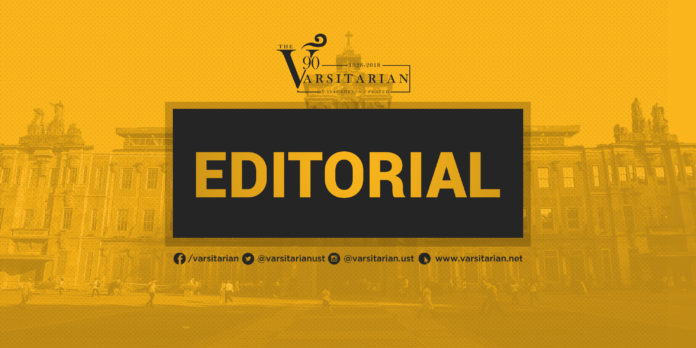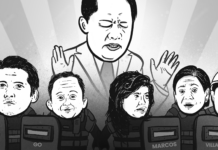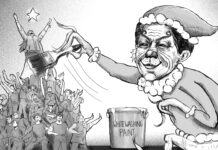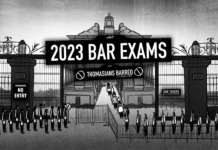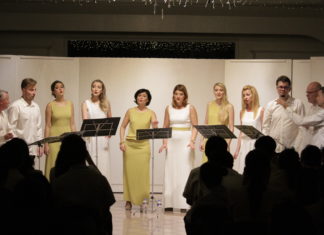TRUTH-TELLING has never been about those who practice it. As part of a self-denying profession, journalists leave behind their personal and even selfish interests to be able to report the best obtainable version of the truth. They do this because their allegiance belongs to the public.
But when the press faces attack, it falls on no less than members of the press themselves to stand up for each other. Otherwise, the press becomes vulnerable to pressure and more attacks. What the state can do to Maria Ressa and news website Rappler, it can do to other news organizations.
On Wednesday, Ressa was arrested on a charge of cyberlibel filed by the Justice department, based on a complaint by businessman Wilfredo Keng over a Rappler story that Chief Justice Renato Corona used the latter’s sport utility vehicle during the late magistrate’s impeachment trial.
The cyberlibel charge is questionable because the National Bureau of Investigation (NBI) had dropped it in 2017, only to be miraculously revived last year. Keng’s complaint, moreover, was filed five years after the story was published, and several months before the offense of cyberlibel entered the statute books.
NBI agents, who were not in their uniforms, served the arrest warrant late in the afternoon on Wednesday, Feb. 13. Ressa, who was named one of TIME Magazine’s Persons of the Year in 2018, spent the night in the custody of the NBI after a court rejected her attempt to post bail. She was finally able to post bail of P100,000 at noon on Thursday, Feb. 14.
Presidential spokesman Salvador Panelo has denied that Ressa’s detention undermined the freedom of the press. Let it be said, however, that the Duterte government had drooled over the prospect of Ressa’s arrest (hence last year’s tax evasion cases against Ressa and Rappler), and this could only be because of Rappler’s critical news coverage of Duterte’s war on drugs and creeping authoritarianism.
We denounce these attacks from the Duterte government, whose sycophants have been quick to pounce on Ressa but have no problems setting free shady politicians like Bong Revilla Jr., Jinggoy Estrada and Juan Ponce Enrile, all out of detention and even running anew for the Senate despite serious accusations of plundering millions in taxpayers’ money.
Ressa’s brazen arrest, timed to prevent her from posting bail and ensure her overnight detention, is the latest in a string of persecutions of critics, beginning with the imprisonment of Sen. Leila de Lima over trumped-up drug charges, the baseless revocation of Sen. Antonio Trillanes IV’s amnesty, and the unprecedented quo warranto petition that unseated Chief Justice Maria Lourdes Sereno.
Like his idol Ferdinand Marcos, dictator-wannabe Rodrigo Duterte and his minions have made clever use of the law and its technicalities to justify these shameless acts.
This, however, does not mean to say that the press and its practitioners are perfect. Despite political and technological upheavals, however, the press has withstood the test of time. Unlike the President, it practices prudence: it knows when to act and speak up. Like the Church, it speaks out against wrongdoings and gives a voice to those who do not have it.
Burke called the press the “fourth estate,” most essential to a free society and therefore more important than the three others — parliament, the nobility and the clergy.
The slightest abridgement to its freedoms weakens democracy and gives free rein to madmen like Duterte to do as they please. To allow that to happen is to betray the public’s trust and to sacrifice the truth itself.


